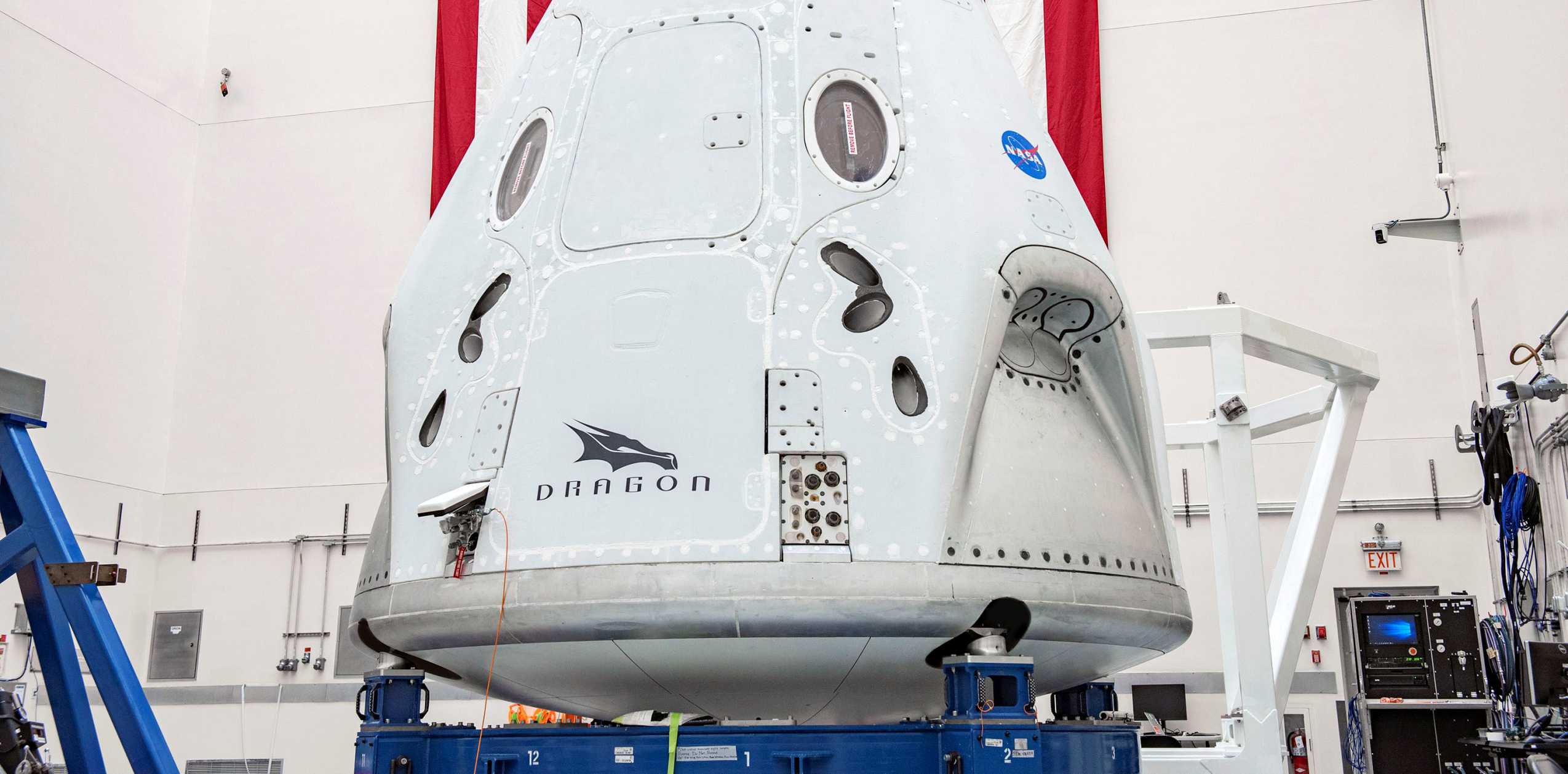
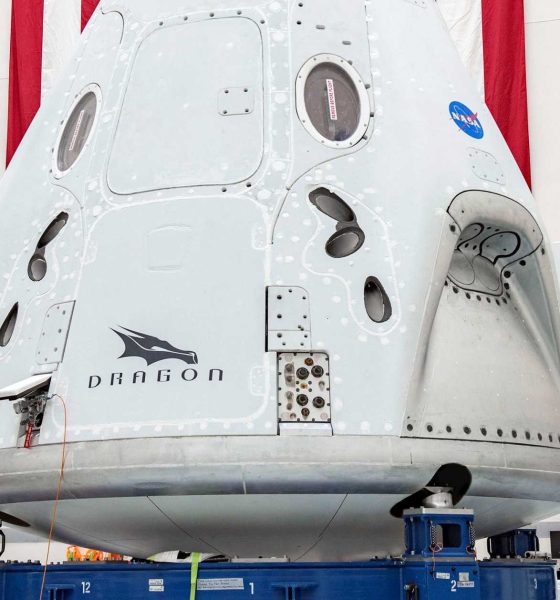
News
SpaceX Crew Dragon NASA astronaut launch debut will carry a surprise payload
SpaceX has plans to include a surprise payload aboard Crew Dragon’s inaugural NASA astronaut launch, scheduled to lift off as soon as May 27th.
Per a NASA update published on May 13th, SpaceX and the space agency remain on track for what will arguably be the company’s single most important mission since its founding in 2002. Over the last 6-9 years, depending on how one counts, SpaceX and NASA have worked relentlessly to develop the next-generation Crew Dragon spacecraft, a dramatically different variant of the extensively flown Cargo Dragon (Dragon 1).
Although the spacecraft’s next launch will be both its and SpaceX’s first crewed launch ever, Crew Dragon has already completed two successful abort tests in 2015 and 2020, as well as a flawless orbital launch debut in March 2019. Just shy of 16 months and no shortage of technical hurdles since that uncrewed orbital debut, the third Crew Dragon spacecraft completed by SpaceX (capsule C206) and a brand new Falcon 9 rocket are ready to make history. Now, on top of the many historic milestones attached to Crew Dragon’s Demo-2 mission, NASA astronauts Bob Behnken and Doug Hurley will be joined by a mosaic of Earth created by tens or even hundreds of thousands of students – both young and old – from around the world.

As of May 15th, per NASA’s latest blog post updates, SpaceX’s plethora of Crew Dragon Demo-2 hardware appears to be just shy of 100% ready for flight, at least from a technical perspective. As of May 12th, NASA and SpaceX officially cleared Crew Dragon’s interior and both astronauts’ space suits for flight, effectively closing out the crew capsule. That reusable Crew Dragon capsule was attached atop an expendable trunk section – responsible for providing power with a solar array and thermal management with radiators – around May 1st.
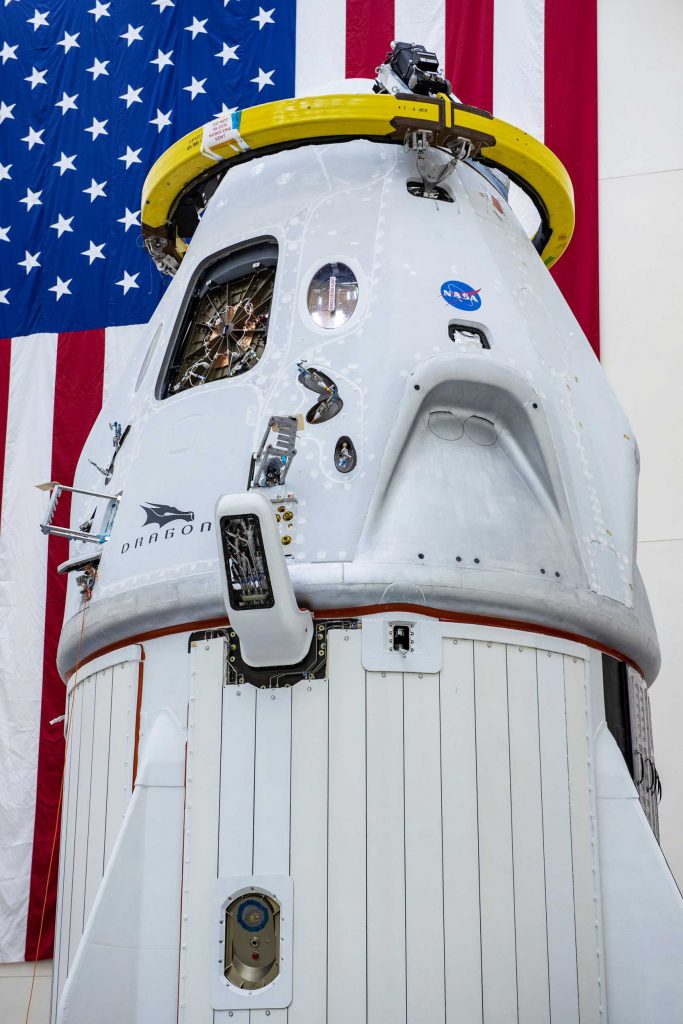
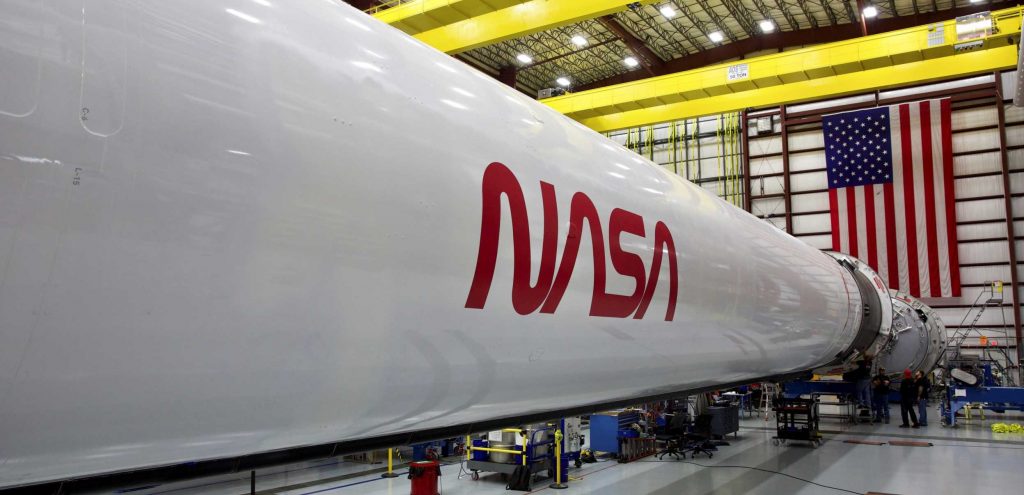
Meanwhile, a brand new Falcon 9 Block 5 booster – B1058 – and expendable upper stage are just shy of ready to go inside SpaceX’s main Launch Complex 39A (Pad 39A) hangar. Both were shipped from California to Florida only after both their Merlin engines and each integrated stage completed static fire acceptance tests in McGregor, Texas. As of April 1st, they appeared to be just shy of fully integrated, with B1058 missing only its titanium grid fins (and possibly landing legs).
Now T-12 days to launch, SpaceX could attach the spacecraft to that Falcon 9 rocket at any moment – if it hasn’t already. Before the rocket is fully ready for launch, SpaceX will need to perform a routine wet dress rehearsal (WDR) and static fire test at Pad 39A – partially unique for Crew Dragon because the spacecraft attached during them. Given that Demo-2 is far from a normal SpaceX launch, Crew Dragon and Falcon 9 could roll out for that critical preflight test at any moment.
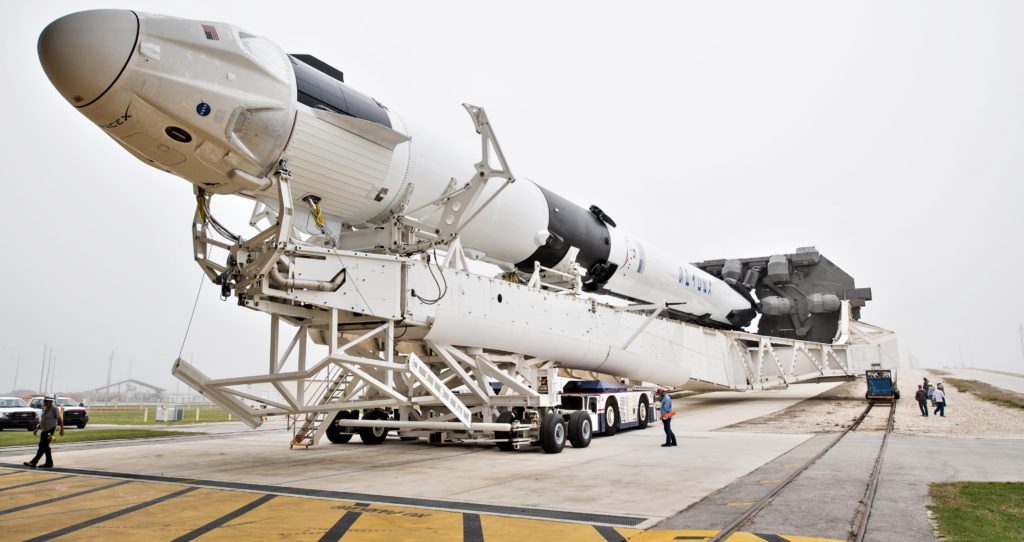
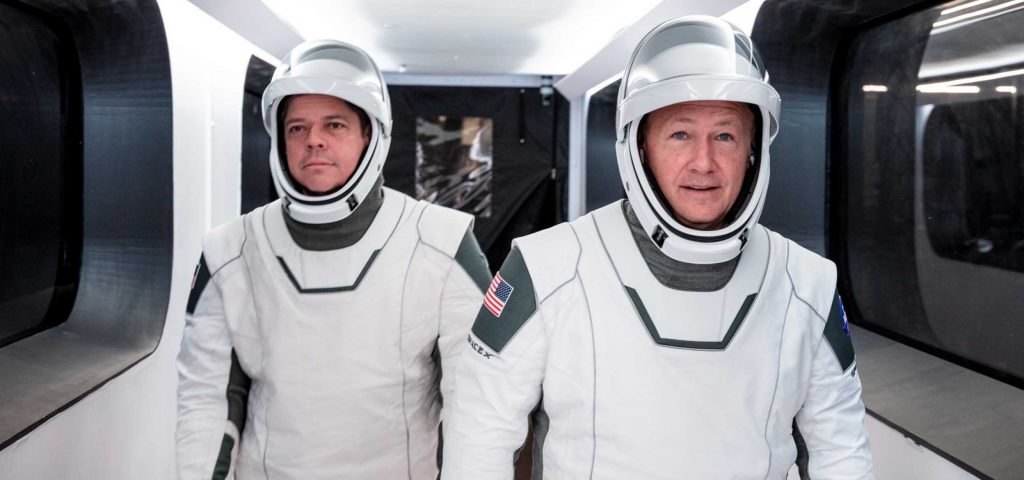
NASA has assigned astronauts Bob Behnken and Doug Hurley to fly Crew Dragon’s inaugural crewed mission to the International Space Station (ISS) and both astronauts have been training more or less 24/7 for the last 12-18 months, as well as advising SpaceX on Crew Dragon’s design. Now, according to SpaceX, those astronauts will be joined by a mosaic image comprised of thousands of photos uploaded by students around the world, ranging from kindergarten to graduate school and more.
Deemed “Class of 2020”, the project is meant to celebrate the class of 2020 – anyone and everyone set to graduate this year. Although unmentioned, the celebration comes at a time when the coronavirus pandemic will almost certainly preclude or dramatically curtail (for good reason) large public gatherings for the sake of public health, disrupting or fully canceling graduation ceremonies around the world. SpaceX says that photos submitted by students will be added to a mosaic of Earth and “will be printed and flown aboard SpaceX’s Crew Dragon spacecraft during its upcoming mission to the International Space Station with NASA astronauts Bob Behnken and Doug Hurley on board.”

While it won’t replace the events themselves, having a photo physically sent to space certainly won’t hurt for tens of thousands, hundreds of thousands, or maybe even millions of students around the world. If you are a student or know one, you can submit your photo at SpaceX.com/ClassOf2020 before the end of May 20th.

News
Tesla confirms Robotaxi expansion plans with new cities and aggressive timeline
Tesla plans to launch in Dallas, Houston, Phoenix, Miami, Orlando, Tampa, and Las Vegas. It lists the Bay Area as “Safety Driver,” and Austin as “Ramping Unsupervised.”
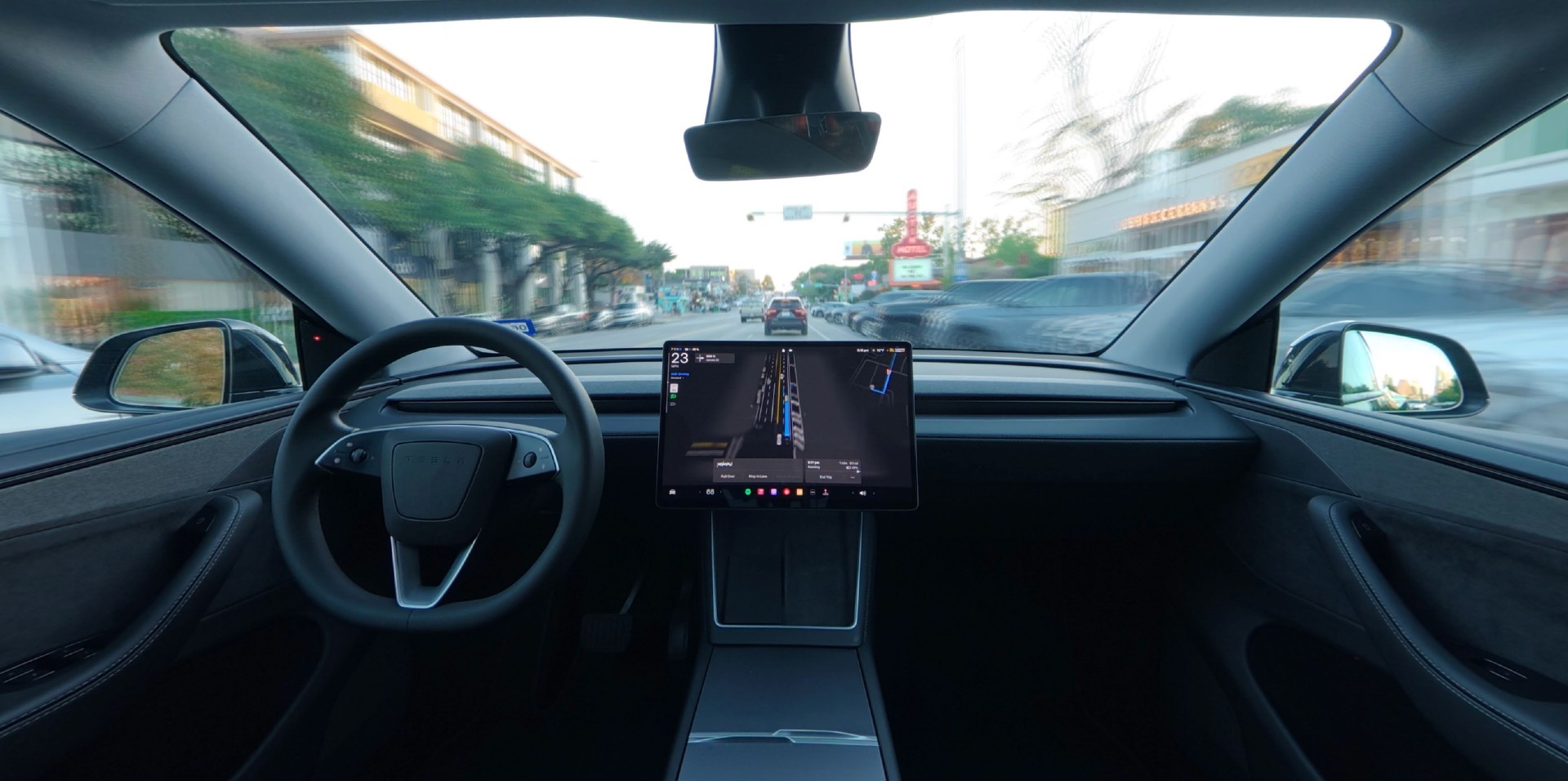
Tesla confirmed its intentions to expand the Robotaxi program in the United States with an aggressive timeline that aims to send the ride-hailing service to several large cities very soon.
The Robotaxi program is currently active in Austin, Texas, and the California Bay Area, but Tesla has received some approvals for testing in other areas of the U.S., although it has not launched in those areas quite yet.
However, the time is coming.
During Tesla’s Q4 Earnings Call last night, the company confirmed that it plans to expand the Robotaxi program aggressively, hoping to launch in seven new cities in the first half of the year.
Tesla plans to launch in Dallas, Houston, Phoenix, Miami, Orlando, Tampa, and Las Vegas. It lists the Bay Area as “Safety Driver,” and Austin as “Ramping Unsupervised.”
These details were released in the Earnings Shareholder Deck, which is published shortly before the Earnings Call:
🚨 BREAKING: Tesla plans to launch its Robotaxi service in Dallas, Houston, Phoenix, Miami, Orlando, Tampa, and Las Vegas in the first half of this year pic.twitter.com/aTnruz818v
— TESLARATI (@Teslarati) January 28, 2026
Late last year, Tesla revealed it had planned to launch Robotaxi in Las Vegas, Phoenix, Dallas, and Houston, but Tampa and Orlando were just added to the plans, signaling an even more aggressive expansion than originally planned.
Tesla feels extremely confident in its Robotaxi program, and that has been reiterated many times.
Although skeptics still remain hesitant to believe the prowess Tesla has seemingly proven in its development of an autonomous driving suite, the company has been operating a successful program in Austin and the Bay Area for months.
In fact, it announced it achieved nearly 700,000 paid Robotaxi miles since launching Robotaxi last June.
🚨 Tesla has achieved nearly 700,000 paid Robotaxi miles since launching in June of last year pic.twitter.com/E8ldSW36La
— TESLARATI (@Teslarati) January 28, 2026
With the expansion, Tesla will be able to penetrate more of the ride-sharing market, disrupting the human-operated platforms like Uber and Lyft, which are usually more expensive and are dependent on availability.
Tesla launched driverless rides in Austin last week, but they’ve been few and far between, as the company is certainly easing into the program with a very cautiously optimistic attitude, aiming to prioritize safety.
Investor's Corner
Tesla (TSLA) Q4 and FY 2025 earnings call: The most important points
Executives, including CEO Elon Musk, discussed how the company is positioning itself for growth across vehicles, energy, AI, and robotics despite near-term pressures from tariffs, pricing, and macro conditions.

Tesla’s (NASDAQ:TSLA) Q4 and FY 2025 earnings call highlighted improving margins, record energy performance, expanding autonomy efforts, and a sharp acceleration in AI and robotics investments.
Executives, including CEO Elon Musk, discussed how the company is positioning itself for growth across vehicles, energy, AI, and robotics despite near-term pressures from tariffs, pricing, and macro conditions.
Key takeaways
Tesla reported sequential improvement in automotive gross margins excluding regulatory credits, rising from 15.4% to 17.9%, supported by favorable regional mix effects despite a 16% decline in deliveries. Total gross margin exceeded 20.1%, the highest level in more than two years, even with lower fixed-cost absorption and tariff impacts.
The energy business delivered standout results, with revenue reaching nearly $12.8 billion, up 26.6% year over year. Energy gross profit hit a new quarterly record, driven by strong global demand and high deployments of MegaPack and Powerwall across all regions, as noted in a report from The Motley Fool.
Tesla also stated that paid Full Self-Driving customers have climbed to nearly 1.1 million worldwide, with about 70% having purchased FSD outright. The company has now fully transitioned FSD to a subscription-based sales model, which should create a short-term margin headwind for automotive results.
Free cash flow totaled $1.4 billion for the quarter. Operating expenses rose by $500 million sequentially as well.
Production shifts, robotics, and AI investment
Musk further confirmed that Model S and Model X production is expected to wind down next quarter, and plans are underway to convert Fremont’s S/X line into an Optimus robot factory with a capacity of one million units.
Tesla’s Robotaxi fleet has surpassed 500 vehicles, operating across the Bay Area and Austin, with Musk noting a rapid monthly expansion pace. He also reiterated that CyberCab production is expected to begin in April, following a slow initial S-curve ramp before scaling beyond other vehicle programs.
Looking ahead, Tesla expects its capital expenditures to exceed $20 billion next year, thanks to the company’s operations across its six factories, the expansion of its fleet expansion, and the ramp of its AI compute. Additional investments in AI chips, compute infrastructure, and future in-house semiconductor manufacturing were discussed but are not included in the company’s current CapEx guidance.
More importantly, Tesla ended the year with a larger backlog than in recent years. This is supported by record deliveries in smaller international markets and stronger demand across APAC and EMEA. Energy backlog remains strong globally as well, though Tesla cautioned that margin pressure could emerge from competition, policy uncertainty, and tariffs.
News
Tesla brings closure to flagship ‘sentimental’ models, Musk confirms
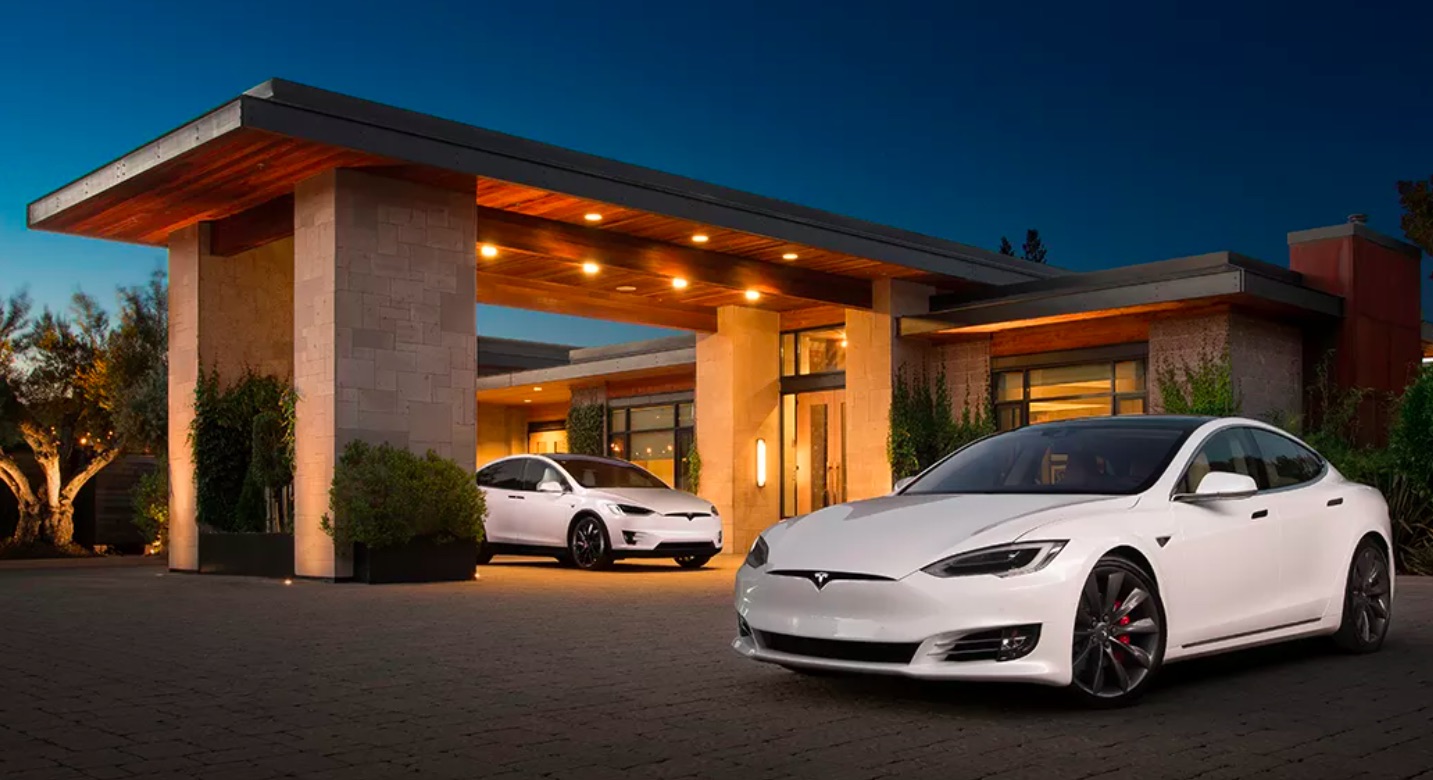
Tesla is bringing closure to its flagship Model S and Model X vehicles, which CEO Elon Musk said several years ago were only produced for “sentimental reasons.”
The Model S and Model X have been light contributors to Tesla’s delivery growth over the past few years, commonly contributing only a few percentage points toward the over 1.7 million cars the company has handed over to customers annually since 2022.
However, the Model S and Model X have remained in production because of their high-end performance and flagship status; they are truly two vehicles that are premium offerings and do not hold major weight toward Tesla’s future goals.
On Wednesday, during the Q4 2025 Earnings Call, Musk confirmed that Tesla would bring closure to the two models, ending their production and making way for the manufacturing efforts of the Optimus robot:
“It is time to bring the Model S and Model X programs to an end with an honorable discharge. It is time to bring the S/X programs to an end. It’s part of our overall shift to an autonomous future.”
Musk said the production lines that Tesla has for the Model S and Model X at the Fremont Factory in Northern California will be transitioned to Optimus production lines that will produce one million units per year.
Tesla Fremont Factory celebrates 15 years of electric vehicle production
Tesla will continue to service Model S and Model X vehicles, but it will officially stop deliveries of the cars in Q2, as inventory will be liquidated. When they’re gone, they’re gone.
BREAKING: Tesla will wind down Model S and Model X production next quarter, Elon Musk confirms.
“It is time to bring the Model S and Model X programs to an end with an honorable discharge.” pic.twitter.com/Czn7aQjJE1
— TESLARATI (@Teslarati) January 28, 2026
Tesla has been making moves to sunset the two vehicles for the better part of one year. Last July, it stopped taking any custom orders for vehicles in Europe, essentially pushing the idea that the program was coming to a close soon.
Musk said back in 2019:
“I mean, they’re very expensive, made in low volume. To be totally frank, we’re continuing to make them more for sentimental reasons than anything else. They’re really of minor importance to the future.”
That point is more relevant than ever as Tesla is ending the production of the cars to make way for Optimus, which will likely be Tesla’s biggest product in the coming years.
Musk added during the Earnings Call on Wednesday that he believes Optimus will be a major needle-mover of the United States’ GDP, as it will increase productivity and enable universal high income for humans.








